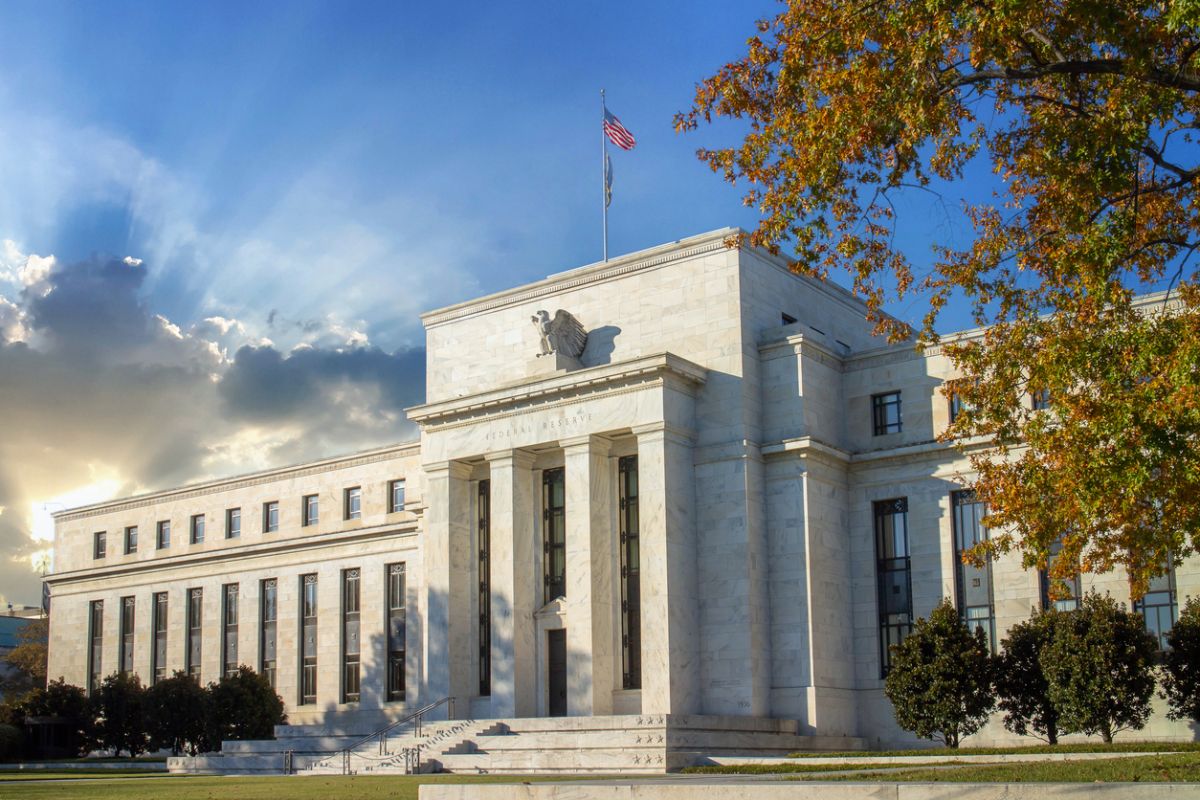5 Things We Learned This Week - 11/2/2024
Submitted by Silverlight Asset Management, LLC on November 2nd, 2024

November 2, 2024
The S&P 500 fell 1.4% this week as investors de-risked ahead of next week's Presidential election. The US Aggregate Bond index fell 0.6% and gold declined 0.3%. Bitcoin outperformed by rallying 3.6%.
The most important economic news was Friday's non-farm payrolls, which rose by only 12k in October—well short of the 113k projection. However, the data was heavily influenced by the recent hurricanes. The ISM Manufacturing PMI eased to 46.5 from 47.2. There was a notable increase in the prices paid index, which rose to 54.8 from 48.3. This indicates building inflation pressure in the supply chain.
Next week, Americans will go to the polls and vote. National presidential polls slightly favor Harris, whereas online betting markets lean toward Trump. FiveThirtyEight's model assigns a 52% probability of a Trump win, and an 89% probability the Republicans win the US Senate. The race in the House is more of a toss up.

Election Investment Themes

Silverlight doesn't own any investments that are purely based on which candidate we think will win Tuesday's presidential election. For example, we own bitcoin, which will probably do slightly better over the next couple weeks if Trump wins because he has a more favorable regulatory plan for crypto. But even if Harris wins, we still think bitcoin is worthy of including in the portfolio over an intermediate time horizon, because it's a hedge against fiat currency debasement. Both candidates plan to continue deficit spending, which will probably require more money printing.
The biggest differences in the candidates' economic policies are hard to calibrate to specific investments. Trump's promise to investors centers on lower taxes and regulation, which can be construed as 'pro-business' policies. But he also promises to ramp up trade tariffs, which could be highly inflationary and detrimental to growth. Since neither candidate in this cycle is a clear "winner" for the market, the key for us is to focus on areas that will probably win over time either way. So, instead of focusing just on green energy stocks that could likely thrive under Harris, or a bunch of oil and gas exploration companies that could do well if Trump allows increased drilling production, we like owning things like industrials that have energy tailwinds either way. For instance, stocks like Emcor (EME) and Hubbell (HUBB) are going to be building energy infrastructure for years to propel AI power demand. There are many investments like that with powerful secular tailwinds, and the leaders of those businesses don't care much who wins next week.
If we had to pick a winner, we'd side with the trading markets predicting a Trump victory. But independent of who wins, life will go on, and so will markets.

The Fed Will Probably Cut Rates Again Next Week

Normally a Federal Reserve policy meeting would be the most important financial news story. Next week's meeting, however, is being overshadowed by the election.
The market expects the Fed to cut rates by another 25 basis points, and this week's tepid payroll number makes that more likely. While the labor report was certainly influenced by weather related events, it's unclear how much of a role the hurricanes actually played. The Fed has a dual mandate to support full employment while keeping inflation low. Even though inflation is still slightly above the 2% target, the Fed pivoted in the last meeting to a more dovish policy stance, largely due to a weakening labor market. Until there are convincing signs of inflation bottoming, we expect the Fed to continue on its current path.

Berkshire Hathaway's Cash Pile Reaches $325 billion

Warren Buffett is sitting on top of a mountain of cash. Buffett's corporate conglomerate, Berkshire Hathaway, has significantly increased its cash reserves to a record $325 billion. This growth is largely due to the company's strategic decision to sell off a substantial portion of Apple stock, which once made up a major part of its portfolio. Despite ample corporate profits and cash reserves, Berkshire has refrained from major acquisitions, opting instead to hold onto its unusually large cash position. Some market pundits try to rationalize different reasons Buffett may be doing this, but it's not a complicated maze. When Buffett becomes more concerned about market valuations and overly positive investor sentiment, he raises cash. When markets dip and sentiment plunges, he deploys the cash. He's been playing this game for decades. He's never perfect in his timing, but Mr. Buffett's contrarian nature is why he's been able to outperform the crowd.

Mega Cap Tech Earnings Fail To Impress

The Bloomberg Magnificent 7 Index was down 1.8% this week after a slew of mega cap tech earnings. Amazon and Google had upbeat results and the stocks rallied 5.4% and 3.6%, respectively. Microsoft (-4.2%), Apple (-3.7%) fell after reporting disappointing figures.
None of the Magnificent 7 stocks are failing businesses, but most appear to be overpriced businesses. After rallying over 100% in 2023 and 45% year-to-date, the index of mega cap darlings trades at 34 times forward earnings. This compares to a forward price-to-earnings multiple of just 18 for the S&P 500 Equal Weighted Index. While we expect some mega cap tech stocks to do ok from here, Silverlight portfolios are strategically underweight big tech. Relative earnings growth for tech is slowing and it's about to become more important for the kings of Silicon Valley to prove the billions they're pouring into AI investments is worth it. We like Amazon, Google and Microsoft best among the mega caps.

No Matter Which Party Wins, America Outperforms Over Time

Since 1957, the S&P 500 has returned 9.3% under Democratic presidents and 10.2% under Republican presidents. In other words, stocks do great independent of who temporarily controls Washington. Annual returns were best under Clinton (+15.2%), Obama (+13.8%), and Trump (+14.1%). Returns were worst under George W. Bush (-6.2%), Nixon (-5.3%), and Kennedy (+5.4%).
Many investors falsely assume that if their preferred political party wins an election, it will automatically be good for their portfolio, and vice versa. Not so! US stocks have done well under many different administrations, largely because macro fundamentals (not political parties) control the stock market. Policy choices always matter around the edges, but they are not a central concern.
The US market and economy have outperformed the rest of the world by a mile over the long-term. Even though our political system is fraught with inefficiencies and bad actors, it's ultimately governed by a pragmatic populace that is center leaning. The country ping pongs back and forth between ideologies, but it never travels too far in one direction to spoil the magic of free market capitalism.
This material is not intended to be relied upon as a forecast, research or investment advice. The opinions expressed are as of the date indicated and may change as subsequent conditions vary. The information and opinions contained in this post are derived from proprietary and non-proprietary sources deemed by Silverlight Asset Management LLC to be reliable, are not necessarily all-inclusive and are not guaranteed as to accuracy. As such, no warranty of accuracy or reliability is given and no responsibility arising in any other way for errors and omissions (including responsibility to any person by reason of negligence) is accepted by Silverlight Asset Management LLC, its officers, employees or agents. This post may contain “forward-looking” information that is not purely historical in nature. Such information may include, among other things, projections and forecasts. There is no guarantee that any of these views will come to pass. Reliance upon information in this post is at the sole discretion of the reader.
Testimonials Content Block
More Than an Investment Manager—A Trusted Guide to Financial Growth
"I’ve had the great pleasure of having Michael as my investment manager for the past several years. In fact, he is way more than that. He is a trusted guide who coaches his clients to look first at life’s bigger picture and then align their financial decisions to support where they want to go. Michael and his firm take a unique and personal coaching approach that has really resonated for me and helped me to reflect upon my core values and aspirations throughout my investment journey.
Michael’s focus on guiding the "why" behind my financial decisions has been invaluable to me in helping to create a meaningful strategy that has supported both my short-term goals and my long-term dreams. He listens deeply, responds thoughtfully, and engages in a way that has made my investment decisions intentional and personally empowering. With Michael, it’s not just about numbers—it’s about crafting a story of financial growth that has truly supports the life I want to live."
-Karen W.
Beyond financial guidance!
"As a long-term client of Silverlight, I’ve experienced not only market-beating returns but also invaluable coaching and support. Their guidance goes beyond finances—helping me grow, make smarter decisions, and build a life I truly love. Silverlight isn’t just about wealth management; they’re invested in helping me secure my success & future legacy!"
-Chris B.
All You Need Know to Win
“You likely can’t run a four-minute mile but Michael’s new book parses all you need know to win the workaday retirement race. Readable, authoritative, and thorough, you’ll want to spend a lot more than four minutes with it.”
-Ken Fisher
Founder, Executive Chairman and Co-CIO, Fisher Investments
New York Times Bestselling Author and Global Columnist.
Packed with Investment Wisdom
“The sooner you embark on The Four-Minute Retirement Plan, the sooner you’ll start heading in the right direction. This fun, practical, and thoughtful book is packed with investment wisdom; investors of all ages should read it now.”
-Joel Greenblatt
Managing Principal, Gotham Asset Management;
New York Times bestselling author, The Little Book That Beats the Market
Great Full Cycle Investing
“In order to preserve and protect your pile of hard-earned capital, you need to be coached by pros like Michael. He has both the experience and performance in The Game to prove it. This is a great Full Cycle Investing #process book!”
-Keith McCullough
Chief Executive Officer, Hedgeye Risk Management
Author, Diary of a Hedge Fund Manager
Clear Guidance...Essential Reading
“The Four-Minute Retirement Plan masterfully distills the wisdom and experience Michael acquired through years of highly successful wealth management into a concise and actionable plan that can be implemented by everyone. With its clear guidance, hands-on approach, and empowering message, this book is essential reading for anyone who wants to take control of their finances and secure a prosperous future.”
-Vincent Deluard
Director of Global Macro Strategy, StoneX

